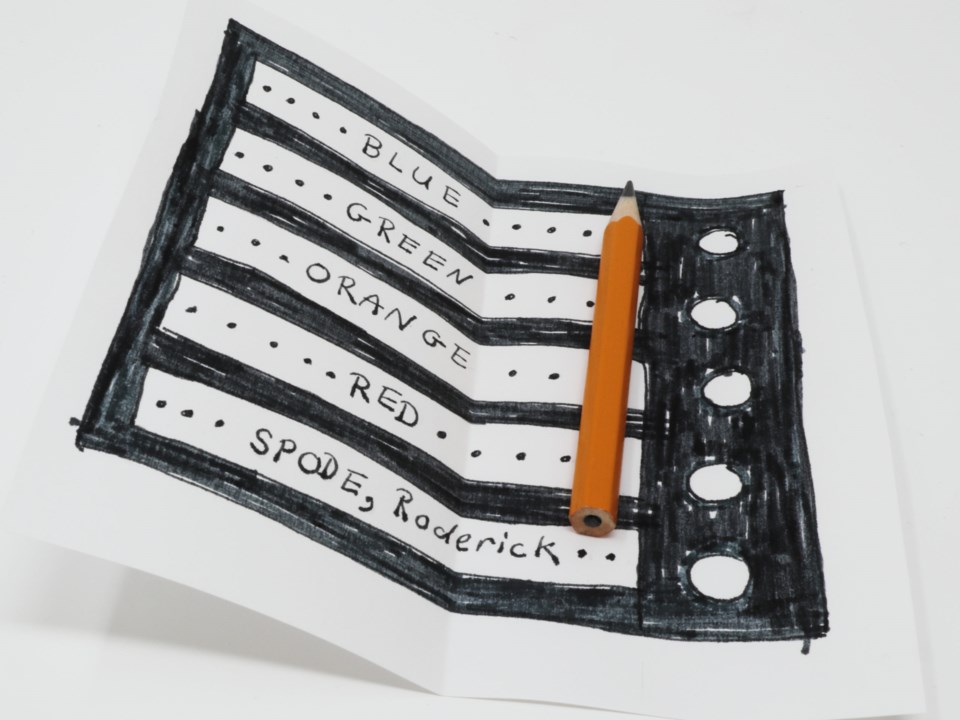NDP
Best Case:
The polls are real. Seeking stability and continuity in a pandemic, British Columbians swallow the rank dishonesty in pretending to decide to force an election after the Premier had already filmed ads. The NDP ride it to their single biggest victory…ever. The Greens are eradicated on Vancouver Island, the NDP almost sweeps the Lower Mainland, and even win a few token rural seats - and has free reign to do pretty much whatever it wants for four years.
Worst Case:
1996, but in reverse. They win the popular vote, but somehow find themselves on the wrong side of the aisle. The NDP run up the score where it doesn’t count, winning gimme seats by massive margins, but lose a few too many tight swing seats. The demographics they dominate are least likely to vote by mail, and months of being ahead in the polls lead too many NDP supporters to stay home, or flirt with the Greens. Local issues like the Massey Tunnel, tent cities, and the Surrey police situation loom too large in key ridings, and the NDP find themselves once again asking the Green Party to go steady.
Most Likely:
The NDP and John Horgan return to the Premier’s Office. I don’t see the crushing victory projected by some; it's easy to forget the NDP are in the strange position of a governing party that must gain seats to stay there. But it’s hard to see anyone but John Horgan in the West Annex.
BC Liberals
Best Case:
Copy and paste the NDP’s worst case scenario above. The BC Liberals hang onto their must-have seats, BC Conservatives forget when or how to vote, and the Greens bleed a decisive amount of support from disaffected NDP voters. Of the 10 or so ridings that could go either way, the BC Liberals win 6 to 8, and somehow find themselves in government – either minority, or the tightest possible majority.
Worst Case:
Not to be lazy, but copy and paste the NDP’s best case scenario. BC decides a pandemic isn’t the time to change government, and some of the party’s campaign stumbles hurt them in ridings elsewhere. The BC Conservatives once more play spoiler; as in 2017, if that happens in even one riding, it’s probably fatal. Even worse, some of the party’s most promising and newer faces are among those defeated. Andrew Wilkinson resigns as leader, and the party descends into a fractious and divisive leadership contest.
Most Likely:
Back in opposition, minus a small number of seats. Andrew Wilkinson holds on as leader for now, but has to fend off persistent questions – and taunts from the NDP.
Greens
Best Case:
Buoyed by Sonia Furstenau’s solid campaign performance, the Greens not only keep their two seats, but win a handful of others in tight three-way races. In the best of the best-case scenario, the party even gains a tenuous but crucial foothold in the Lower Mainland. Furstenau’s three wishes are granted: she wins her own seat back; the election creates another minority parliament with the Greens holding the balance; and Andrew Weaver disappears into a quiet career in academia. A silent one, even.
Worst Case:
Blindsided and unprepared for a snap election under a new leader just six days into the job, the Greens are swamped by a concerted NDP effort and focus to stamp out their beachhead. And while people generally agree Furstenau was the best performer in the debates, the same was said last year of Jagmeet Singh, who lost ground when it counted. Both Adam Olsen and Sonia Furstenau lose tight races, and the party is left on the sidelines while the NDP pretends to feel bad about it.
Most Likely:
The Greens survive to fight another day, even if only a single seat. Furstenau returns to the legislature to stare down her erstwhile CASA partners, Olsen loses an agonizingly tight race, and the Greens are competitive in more ridings than ever before – but only competitive.
Others
Best Case:
For this umbrella category of independent candidates and small parties, the best case is one of them actually wins. It’s not impossible – BC had an Independent win as recently as 2009 in Vicki Huntington – but the odds are steep. Oddly, the first- and second-best chances for that to happen in 2020 are in the same riding. Former BC Liberal (and incumbent MLA) Laurie Throness, and Independent challenger Jason Lum both figure to be factors in Chilliwack-Kent.
Worst Case:
Just like 2013, 2017, and, well, most of the time, the legislature is a party-only club.
Most Likely:
Throness is probably still the odds-on favourite in his riding; after all, he’s still on the ballot as a BC Liberal. But this is BC politics, where anything can happen, and frequently does.
Maclean Kay is Editor-in-Chief of The Orca
SWIM ON:
- Maclean Kay did this almost exactly a year ago for the 2019 federal election.
- No matter for whom, if you ran: thank you.
- In UnSpun 93, Jody Vance welcomed CTV's Bhinder Sajan to talk modern journalism, racial and gender bias, and the pandemic election,



